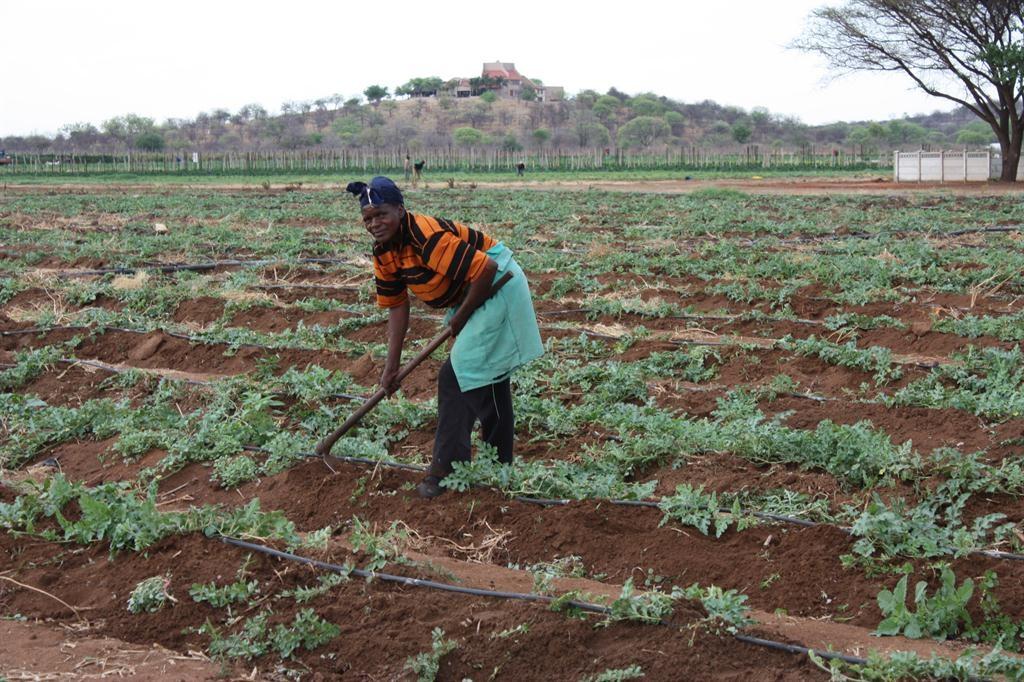Women key to growing food demand
Africa needs to reflect more on the role women play in food and nutrition security, land and water management, experts say.
ELLANIE SMIT
WINDHOEK
Africa's hopes of feeding a population projected to double by 2050, amidst a worsening climate crisis, rest on huge investments in agriculture, including creating conditions for women to empower themselves and lead efforts to transform the farming landscape on the continent.
According to a new report jointly issued by the African Union and the Food and Agriculture Organisation (FAO), Africa needs to reflect more on the role women play in food and nutrition security, land and water management.
The report, 'Leaving No One Behind', said it is estimated that 56% of the African population will live in urban areas by 2050.
“If we are to meet this growing demand for food, we must harness the full potential of women.”
It said women in Africa are critical agents of change in the fight against rural poverty, hunger and malnutrition.
“They are the backbone of their households, communities, and rural economies covering important roles in food production, processing and marketing, and also in the nutrition of the family.”
However, with food systems rapidly modernising and dramatic effects of climate change and environmental degradation becoming the 'new normal', women continue to face multiple challenges due to persisting gender discriminations, according to the report.
Millions still suffering
An estimated 383 million people are still suffering from hunger and malnutrition in Africa.
Evidence shows that women are more food insecure than men in every region of the world, but particularly within Africa, the report said.
“Around 60% of the African population still live in rural areas, with agriculture being the most important sector driving economic and employment growth.”
The agricultural sector employs over 50% of the continent's labour force, as well as more women than men. “However, their employment is through self-employment in their own activities and contribution to the family farms. Both are considered vulnerable employment and tend to generate lower incomes.”
Women farmers disadvantaged
In sub-Saharan Africa over 60% of all employed women work in agriculture, and they produce up to 80% of foodstuffs for household consumption and sale in local markets.
However, the report pointed out that these women farmers are disadvantaged by a range of factors, such as laws, policies, gender-blind development programmes, and entrenched norms and power imbalances within and outside their homes and communities.
The report said research found differences in wages and salaries between men and women in the sector as well as type of contracts for the same work (daily employment versus more stable employment, for instance).
Within the agricultural sector, women often receive lower wages than men do. It said fundamental gender constraints clearly shape how women and men are involved in and benefit from agricultural food systems.
This, in turn, impacts how young women participate in value chains or have access to resources such as land, as well as their decision-making power and how their money earned is spent.
WINDHOEK
Africa's hopes of feeding a population projected to double by 2050, amidst a worsening climate crisis, rest on huge investments in agriculture, including creating conditions for women to empower themselves and lead efforts to transform the farming landscape on the continent.
According to a new report jointly issued by the African Union and the Food and Agriculture Organisation (FAO), Africa needs to reflect more on the role women play in food and nutrition security, land and water management.
The report, 'Leaving No One Behind', said it is estimated that 56% of the African population will live in urban areas by 2050.
“If we are to meet this growing demand for food, we must harness the full potential of women.”
It said women in Africa are critical agents of change in the fight against rural poverty, hunger and malnutrition.
“They are the backbone of their households, communities, and rural economies covering important roles in food production, processing and marketing, and also in the nutrition of the family.”
However, with food systems rapidly modernising and dramatic effects of climate change and environmental degradation becoming the 'new normal', women continue to face multiple challenges due to persisting gender discriminations, according to the report.
Millions still suffering
An estimated 383 million people are still suffering from hunger and malnutrition in Africa.
Evidence shows that women are more food insecure than men in every region of the world, but particularly within Africa, the report said.
“Around 60% of the African population still live in rural areas, with agriculture being the most important sector driving economic and employment growth.”
The agricultural sector employs over 50% of the continent's labour force, as well as more women than men. “However, their employment is through self-employment in their own activities and contribution to the family farms. Both are considered vulnerable employment and tend to generate lower incomes.”
Women farmers disadvantaged
In sub-Saharan Africa over 60% of all employed women work in agriculture, and they produce up to 80% of foodstuffs for household consumption and sale in local markets.
However, the report pointed out that these women farmers are disadvantaged by a range of factors, such as laws, policies, gender-blind development programmes, and entrenched norms and power imbalances within and outside their homes and communities.
The report said research found differences in wages and salaries between men and women in the sector as well as type of contracts for the same work (daily employment versus more stable employment, for instance).
Within the agricultural sector, women often receive lower wages than men do. It said fundamental gender constraints clearly shape how women and men are involved in and benefit from agricultural food systems.
This, in turn, impacts how young women participate in value chains or have access to resources such as land, as well as their decision-making power and how their money earned is spent.





Comments
Namibian Sun
No comments have been left on this article